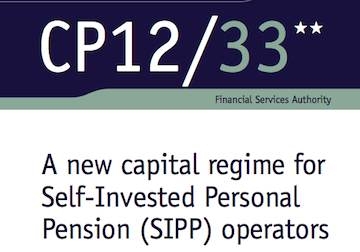Sipp provider Talbot and Muir has questioned the Financial Services Authority's decision to omit commercial property from its list of standard assets.
In a consultation last week, the FSA said it would be quadrupling capital requirements to at least £20,000 and firms which dealt with "non-standard assets" could be required to keep even more.
The reason given by the FSA was that firms which dealt in these type of assets cost more to wind down.
A spokesperson for Talbot and Muir said: "It is difficult to reconcile these objectives with the exclusion of real property assets from the definition of standard assets.
{desktop}{/desktop}{mobile}{/mobile}
"There seems to be a false assumption within the consultation paper that real property assets would have to be sold at the point a Sipp operator discontinues their business. The reality is that these are tangible assets where, more often than not, the client's underlying business is the tenant.
"In practice therefore these assets would simply be re-registered from one scheme to another. It is neither the case that there would be a significant delay in transferring this asset type, nor that the costs associated with such transfers would be in any way reflected in the proposed increase in capital adequacy requirements."
It said that unlike firms which invested in risky products such as UCIS, there was not a high risk that commercial property could fail.
It suggested advisers should pay close attention to the exposure of their Sipp provider to non-standard assets.
The deadline for comments to the consultation paper is 22 February 2013.
• Want to receive a free weekly summary of the best news stories from our website? Just go to home page and submit your name and email address. If you are already logged in you will need to log out to see the e-newsletter sign up. You can then log in again.

